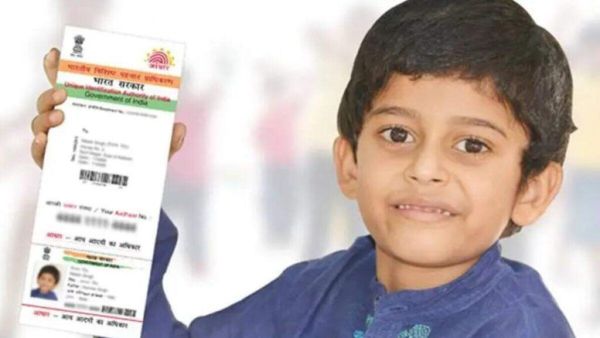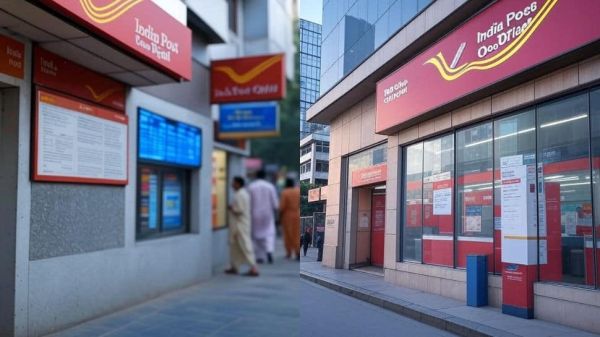For the second time this month, the Supreme Court refrained from staying the special intensive revision (SIR) process being conducted in Bihar. This means that the draft electoral roll scheduled for release on August 1 stays firmly on track. The court's position was expected, considering the tone it had set the first time. Hearings will continue through next month.
The heavy lifting done by the electoral machinery, especially booth-level officers (BLOs) and registration officers, in delivering enumeration forms to each elector and collecting them within a month is commendable. In this round, SIR could touch almost all 7.9 cr electors in the base list. More importantly, the saturation would have given confidence to the court and others who had concerns about feasibility of the exercise ahead of polls expected in November.
From segregated figures announced by EC, 22 lakh electors are deceased, 36 lakh permanently shifted or untraced, 7 lakh registered in multiple locations, and 1.2 lakh forms yet to be received. These names are very likely to miss being on the draft roll on Friday. Booth-level lists of these electors have been shared with political parties. The 7.24 cr electors whose signed forms have been received are likely to be on the draft electoral roll.
August will have 30 days for parties and electors to lodge claims regarding those eligible but not on the draft roll, or to object to an ineligible name on the list. The electoral registration officer (ERO) will decide on all complaints. There will be no deletion without a notice and speaking order of the ERO/assistant ERO, while still allowing for appeal to the district magistrate and chief electoral officer.
This is an opportunity for parties to guard their electoral base, particularly to locate the 36 lakh permanently shifted/untraced electors, and those who haven't yet submitted forms for whatever reason. This potentially leaves scope for genuine electors to be restored on the roll.
Without too many precedents, SIR may appear to reverse participation mobilisation that EC has pursued over the last 15-odd years, reflected in growing size of electorate and record voter turnout. Despite focus on eligibility of electors as specified in Article 326 of the Constitution, EC has declared that the main objective of SIR is to leave no eligible elector in Bihar behind. The Supreme Court specifically reminded the commission to focus more on inclusion, rather than exclusion.
Urban electors, who tend to migrate, are being located through special camps, and new voters who qualify against additional cutoff dates of July 1 and October 1 are being specially followed up. 1 lakh BLOs have made at least three visits to each household in all 38 districts of Bihar. Also, there's EC's campaign via 5 lakh volunteers and 1.6 lakh booth-level agents (BLAs) of political parties.
What has gone unnoticed is EC's nationwide effort to bring back into Bihar's electoral roll migrants still not enrolled at their places of work outside the state. More inclusion efforts, both for registration as well as for voting, could be on their way.
The apex court has reiterated its suggestion for Aadhaar and voter ID cards to be included as valid documents for registration on the electoral roll. EC's machinery is already committed to assisting electors in obtaining requisite documents on time, especially in support of those marginalised and in difficult conditions.
India does not have a citizenship certificate/card, though a range of cards providing sundry benefits assume citizenship of the holder. How much EC takes upon itself the burden of mobilising its own prescribed documents from aspiring electors, or the flexibility it allows in submission of these, will be keenly watched.
It is empowering for a nation for its political parties to remain watchful over enfranchisement and disenfranchisement of its citizens. But adoption of well laid-out institutional procedures, including appeals to constitutional courts, must be the appropriate route, rather than knee-jerk conspiracy theories. Bringing up problems in the SIR process in Bihar is legitimate, as is expression of grievance inside and outside the legislature.
But genuine debate gets blurred when done and dusted elections, whether in Maharashtra or Karnataka and now Gujarat, are raked up. Worse still, when intentions and behaviour of EC, an institutional body whose incumbents are ever in flux, are deemed suspect.
Accusations of a 'coloured reading' of demography in Bihar's electoral rolls, especially where citizenship issues are under active discussion, could last well beyond SIR. They may even extend to poll results. Election management has being unduly linked with political outcomes of late. This is an area where both election managers and political parties need to work on.
SIR ahead of assembly elections in Assam, Kerala, Tamil Nadu, Puducherry and West Bengal won't be free of rebuttals, irrespective of the outcome of petitions in the Supreme Court. But, in 1995, Bihar witnessed a successful surgery to rein in the menace of booth-capturing. EC had then earned its stripes. The state settling down with SIR could have a similar salutary impact on such an exercise, preliminary work for which has already commenced, in the rest of the country.
The heavy lifting done by the electoral machinery, especially booth-level officers (BLOs) and registration officers, in delivering enumeration forms to each elector and collecting them within a month is commendable. In this round, SIR could touch almost all 7.9 cr electors in the base list. More importantly, the saturation would have given confidence to the court and others who had concerns about feasibility of the exercise ahead of polls expected in November.
From segregated figures announced by EC, 22 lakh electors are deceased, 36 lakh permanently shifted or untraced, 7 lakh registered in multiple locations, and 1.2 lakh forms yet to be received. These names are very likely to miss being on the draft roll on Friday. Booth-level lists of these electors have been shared with political parties. The 7.24 cr electors whose signed forms have been received are likely to be on the draft electoral roll.
August will have 30 days for parties and electors to lodge claims regarding those eligible but not on the draft roll, or to object to an ineligible name on the list. The electoral registration officer (ERO) will decide on all complaints. There will be no deletion without a notice and speaking order of the ERO/assistant ERO, while still allowing for appeal to the district magistrate and chief electoral officer.
This is an opportunity for parties to guard their electoral base, particularly to locate the 36 lakh permanently shifted/untraced electors, and those who haven't yet submitted forms for whatever reason. This potentially leaves scope for genuine electors to be restored on the roll.
Without too many precedents, SIR may appear to reverse participation mobilisation that EC has pursued over the last 15-odd years, reflected in growing size of electorate and record voter turnout. Despite focus on eligibility of electors as specified in Article 326 of the Constitution, EC has declared that the main objective of SIR is to leave no eligible elector in Bihar behind. The Supreme Court specifically reminded the commission to focus more on inclusion, rather than exclusion.
Urban electors, who tend to migrate, are being located through special camps, and new voters who qualify against additional cutoff dates of July 1 and October 1 are being specially followed up. 1 lakh BLOs have made at least three visits to each household in all 38 districts of Bihar. Also, there's EC's campaign via 5 lakh volunteers and 1.6 lakh booth-level agents (BLAs) of political parties.
What has gone unnoticed is EC's nationwide effort to bring back into Bihar's electoral roll migrants still not enrolled at their places of work outside the state. More inclusion efforts, both for registration as well as for voting, could be on their way.
The apex court has reiterated its suggestion for Aadhaar and voter ID cards to be included as valid documents for registration on the electoral roll. EC's machinery is already committed to assisting electors in obtaining requisite documents on time, especially in support of those marginalised and in difficult conditions.
India does not have a citizenship certificate/card, though a range of cards providing sundry benefits assume citizenship of the holder. How much EC takes upon itself the burden of mobilising its own prescribed documents from aspiring electors, or the flexibility it allows in submission of these, will be keenly watched.
It is empowering for a nation for its political parties to remain watchful over enfranchisement and disenfranchisement of its citizens. But adoption of well laid-out institutional procedures, including appeals to constitutional courts, must be the appropriate route, rather than knee-jerk conspiracy theories. Bringing up problems in the SIR process in Bihar is legitimate, as is expression of grievance inside and outside the legislature.
But genuine debate gets blurred when done and dusted elections, whether in Maharashtra or Karnataka and now Gujarat, are raked up. Worse still, when intentions and behaviour of EC, an institutional body whose incumbents are ever in flux, are deemed suspect.
Accusations of a 'coloured reading' of demography in Bihar's electoral rolls, especially where citizenship issues are under active discussion, could last well beyond SIR. They may even extend to poll results. Election management has being unduly linked with political outcomes of late. This is an area where both election managers and political parties need to work on.
SIR ahead of assembly elections in Assam, Kerala, Tamil Nadu, Puducherry and West Bengal won't be free of rebuttals, irrespective of the outcome of petitions in the Supreme Court. But, in 1995, Bihar witnessed a successful surgery to rein in the menace of booth-capturing. EC had then earned its stripes. The state settling down with SIR could have a similar salutary impact on such an exercise, preliminary work for which has already commenced, in the rest of the country.
(Disclaimer: The opinions expressed in this column are that of the writer. The facts and opinions expressed here do not reflect the views of www.economictimes.com.)






Akshay Rout
The writer is former director general, Election Commission of India